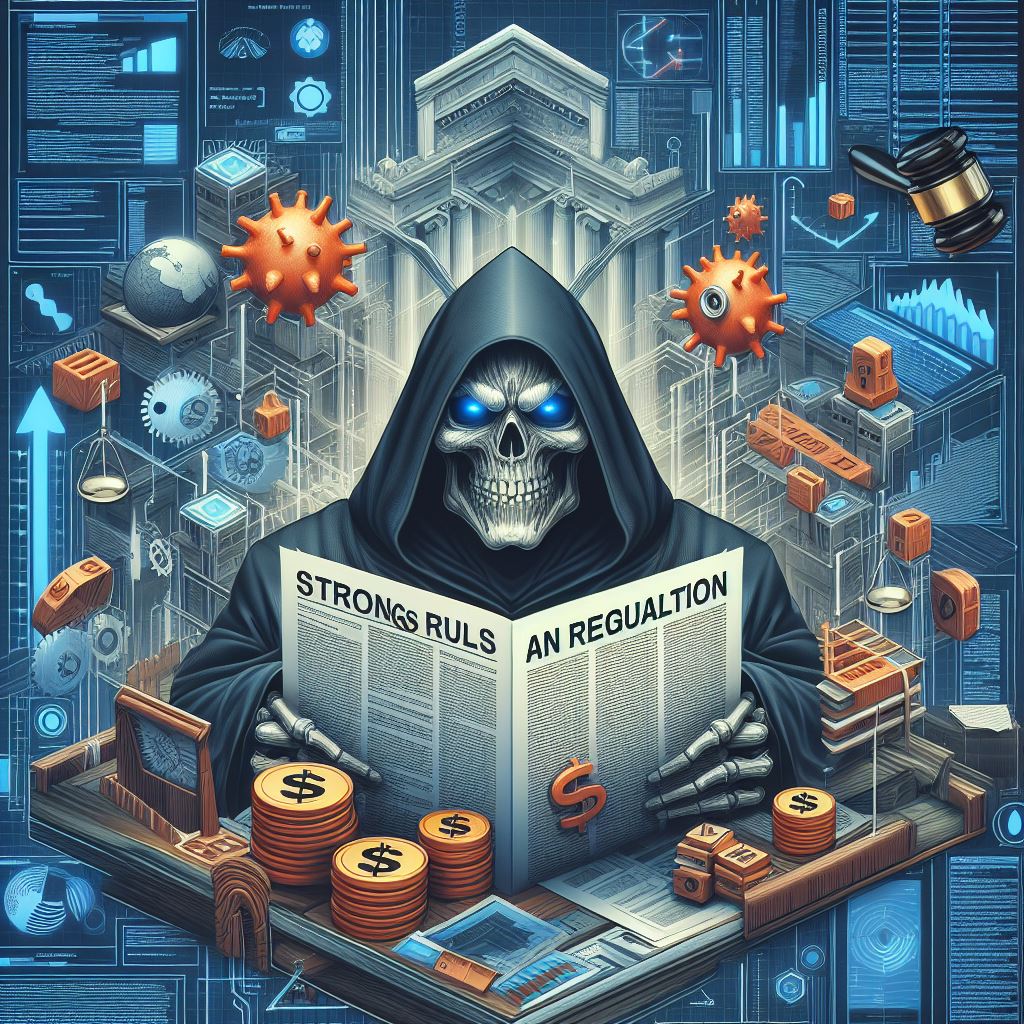 Software technologies are ubiquitous in our modern society. They power our devices, our communication, our entertainment, our education, our health, our economy, and more. However, software technologies also pose significant challenges and risks to our security, privacy, autonomy, and well-being. That is why we need strong rules and regulations around software technologies, especially in areas such as update liabilities and cloud services.
Software technologies are ubiquitous in our modern society. They power our devices, our communication, our entertainment, our education, our health, our economy, and more. However, software technologies also pose significant challenges and risks to our security, privacy, autonomy, and well-being. That is why we need strong rules and regulations around software technologies, especially in areas such as update liabilities and cloud services.
Update Liabilities
Software updates are essential for maintaining the functionality, performance, and security of software products. However, software updates can also introduce new bugs, vulnerabilities, or unwanted features that can harm users or compromise their data. For example, in 2023, a software update for a popular smart home device caused it to malfunction and lock users out of their homes. In another case, a software update for a widely used social media app changed its privacy policy and allowed it to share user data with third parties without consent.
These incidents raise the question of who is liable for the damages caused by software updates. Currently, there is no clear legal framework or standard for holding software developers or providers accountable for the quality and impact of their software updates. Users often have to accept the terms and conditions of software products, which usually include clauses that limit or waive the liability of the software provider. This means that users have little recourse or compensation when they suffer losses or harms due to software updates.
We need strong rules and regulations that establish the responsibilities and obligations of software providers regarding software updates. Software providers should be required to inform users about the content, purpose, and potential risks of software updates, and obtain their consent before installing them. Software providers should also be liable for any damages or harms caused by software updates, and provide adequate remedies or compensation to affected users. Software providers should also be subject to audits and inspections by independent authorities to ensure the quality and security of their software updates.
Cloud Services
Cloud services are software products that are delivered over the internet, rather than installed on users’ devices. Examples of cloud services include email, online storage, streaming, gaming, e-commerce, and more. Cloud services offer many benefits to users, such as convenience, accessibility, scalability, and cost-effectiveness. However, cloud services also pose significant challenges and risks to users’ rights, interests, and values. For example, cloud services often collect, store, process, and share large amounts of user data, which can expose users to privacy breaches, identity theft, surveillance, or manipulation. Cloud services also depend on the availability and reliability of the internet and the cloud infrastructure, which can be disrupted by technical failures, cyberattacks, or natural disasters. Cloud services also raise ethical and social issues, such as the environmental impact of cloud computing, the digital divide between those who have access to cloud services and those who do not, and the power and influence of cloud service providers over users and society.
We need strong rules and regulations that protect and empower users of cloud services. Users should have the right to access, control, and delete their data stored in the cloud, and to opt out of data collection or sharing by cloud service providers. Users should also have the right to know how their data is used, processed, and protected by cloud service providers, and to be notified of any data breaches or incidents that affect their data. Users should also have the right to choose, switch, or terminate cloud service providers, and to access their data in a portable and interoperable format. Users should also have the right to challenge or appeal any decisions or actions taken by cloud service providers that affect their rights, interests, or values. Cloud service providers should also be subject to transparency, accountability, and oversight by independent authorities and stakeholders, and to comply with ethical and social standards and norms.
Government Responsibilities
Software technologies are not neutral or value-free. They reflect the choices, values, and interests of their creators, providers, and users. They also shape and influence the choices, values, and interests of their users and society. Therefore, software technologies have significant implications for our individual and collective rights, interests, and values. As such, software technologies are not only technical, but also political, ethical, and social issues.
The government has the responsibility to protect and promote the rights, interests, and values of its citizens and society in relation to software technologies. The government should enact and enforce strong rules and regulations that ensure the quality, security, and reliability of software products, and that safeguard the rights, interests, and values of software users and society. The government should also support and facilitate the development and innovation of software technologies that benefit the public good, and that address the social and environmental challenges and opportunities of our time. The government should also educate and empower its citizens and society to use software technologies responsibly, critically, and creatively, and to participate in the governance and oversight of software technologies.
Software technologies are powerful tools that can enhance or endanger our lives and society. We need strong rules and regulations that ensure that software technologies serve us, not harm us, and that we have a say in how software technologies are designed, developed, and deployed. We need a government that protects and promotes our rights, interests, and values in relation to software technologies, and that fosters a culture of responsibility, accountability, and democracy around software technologies.

